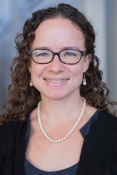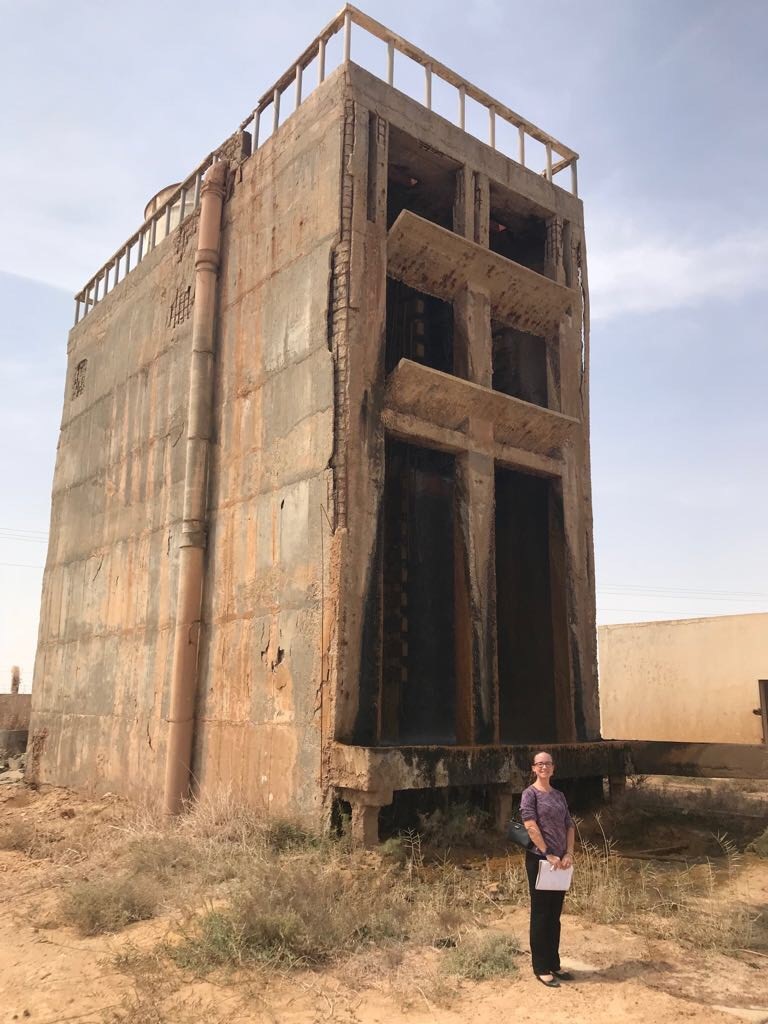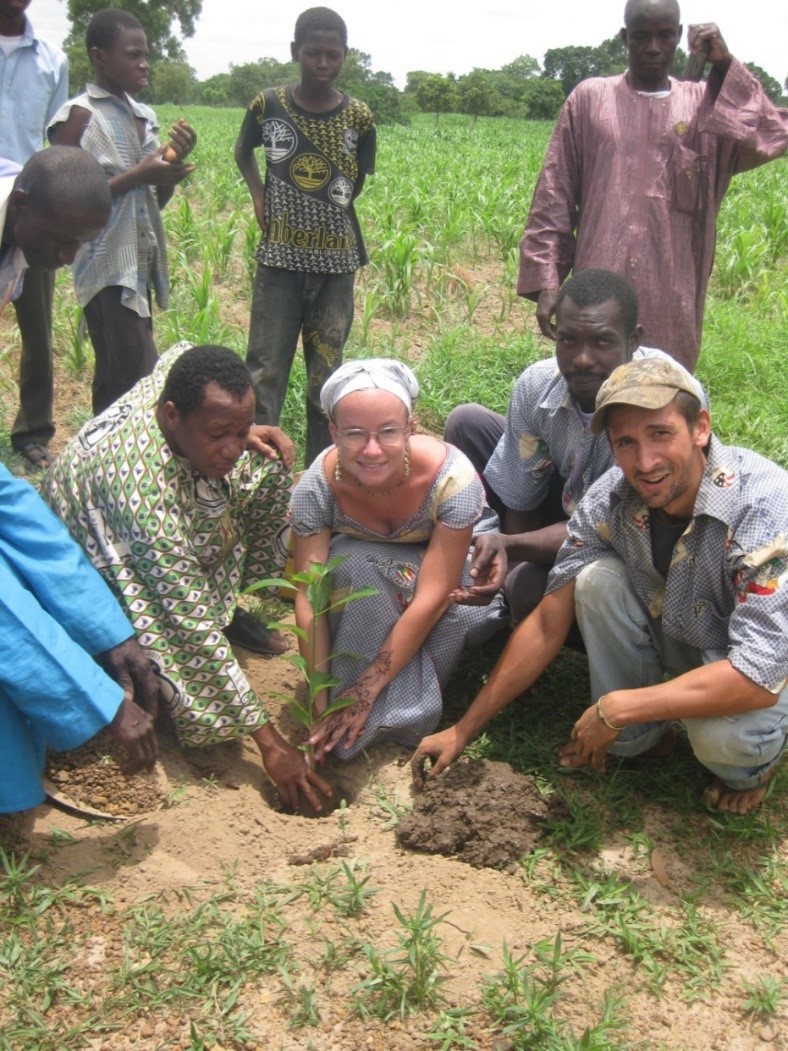
Colleen C. Naughton, PhD
"My passion for service, the environment, and helping address inequalities in the world was solidified when I was in Model United Nations in high school. Instead of international relations, I chose engineering to learn how to “solve problems” with encouragement from a high school counselor. I obtained my B.S. in Civil Engineering with an Environmental Concentration from Purdue University (GO BOILERS!!) in 2008. I then joined the Peace Corps Masters International Program at the University of South Florida where I combined my graduate education and research with service in the Peace Corps as a Water, Sanitation, and Hygiene Engineer in Mali, West Africa from 2009-2012. Upon completion of my PhD and post doc in 2017, I became an American Association for the Advancement of Science (AAAS) Science and Technology Policy fellow in Washington D.C. before joining the faculty in Civil and Environmental Engineering at UC Merced in January 2019."
School: Engineering
Department: Civil and Environmental Engineering
Professional Appointments: Member of Faculty Advisory Committee on Sustainability

Dr. Naughton during her American Association for the Advancement of Science (AAAS) Science and Technology Policy Fellowship where she served as an Environmental and Social Systems specialist for the Millennium Challenge Corporation (A U.S. international development agency). Here she is on a mission to Tunisia, evaluating current infrastructure for a water project. In the background is a geothermal cooling tower for groundwater in need of rehabilitation to reduce water loses in a desert climate.
Research: " My research designs sustainable and culturally sensitive food-energy-water systems (FEWS) through Life Cycle Sustainability Assessment (LCSA), Geographic Information Systems, integration of anthropology and engineering, and effective science policy. Often we focus on one sector in FEWS and miss key tradeoffs or impacts in the other sector (e.g. moving to drip irrigation to save water but then increase energy requirements). LCSA is a method to quantify environmental, social, and economic impacts from cradle to grave or farm to plate to design sustainable systems. My research also focuses on improving access to clean water to all through mapping contamination and designing sustainable water treatment methods. A graduate student in my lab is looking at 1,2,3-trichloropropane contamination from soil fumigants and treatment through Granulated Activated Carbon of almond shells. Overall, I strive to follow a Community Based Participatory Research approach where I solicit research needs from the community and communicate results continuously. "

Dr. Naughton and two undergradutate researchers in her lab after the UC Merced Society of Women Engineer's Expanding Your Horizons event for over 200 middle and high school girls. Our activity involved learning about air pollution and building EPA low-cost particulate matter sensors
Courses & Learning Outcomes: ENVE 020- Introduction to Environmental Science and Technology, Coming soon, upper level course on Sustainable Development Engineering for Communities. Key student learning outcomes for ENVE020 related to sustainability: (1) Explain local and global environmental problems and their impact on human health, welfare, natural systems, and natural resources and the needs of society, (2) An ability to apply engineering design to produce solutions that meet specified needs with consideration of public health, safety, and welfare, as well as global, cultural, social, environmental, and economic factors, (3) An ability to recognize ethical and professional responsibilities in engineering situations and make informed judgements, which must consider the impact of engineering solutions in global, economic, environmental, and societal contexts.”
How did you get engaged with sustainability?
" I think I first became engaged with sustainability through my grandmother who was an avid recycler then when I took a trip out west (I’m from Michigan) with my family when I was eight and saw Yellowstone national park and many natural wonders along the way. Then in high school Model United Nations, I learned more about the environmental destruction across the globe and importance of protecting our environment to ensure peace, food security and clean water for all. From there, I have emphasized in sustainability throughout my education, service, research, and daily practices as much as possible. UC Merced’s emphasis in sustainability and (Leadership in Energy and Environmental Design) LEED certified buildings are what drew me to my current position here. "

Releasing Salmon in March 2020 in collaboration with the East Merced Resource Conservation District and 125 elementary students from Ballico elementary (8 undergraduate and graduate student volunteers from UC Merced participated)
How is your teaching and/or research making a difference?
"The world’s problems and inequalities can be overwhelming, and can make us wonder if we really can make a difference of if we should try at all. I try through my daily interactions with others, service, research, and teaching to make a difference even in small ways. Through my Life Cycle Sustainability Assessment research, I quantify the environmental, economic, and social impacts of products or processes particularly in agriculture to design sustainable improvements and help consumers make informed choices. I have done this for shea butter production but now my group is focusing on different crops in California (fresh tomatoes, figs, etc.). I also try to increase access to clean water by mapping contamination and health impacts, designing sustainable water treatment systems, and community outreach. I interweave sustainability through my Introduction to Environmental Science and Technology lessons and my students have group projects in sustainable design."

Planting a Baobab tree during her going away ceremony upon completing my service as a Peace Corp’s Water and Sanitation Engineer in Mali, West Africa
Research grants in the past 5 years: Key personnel, USF $2.5 million NSF NRT-INFEWS: Systems Training for Research ON Geography-based Coastal Food Energy Water Systems (STRONG-CFEWS), 9/1/2017-8/30/2022



